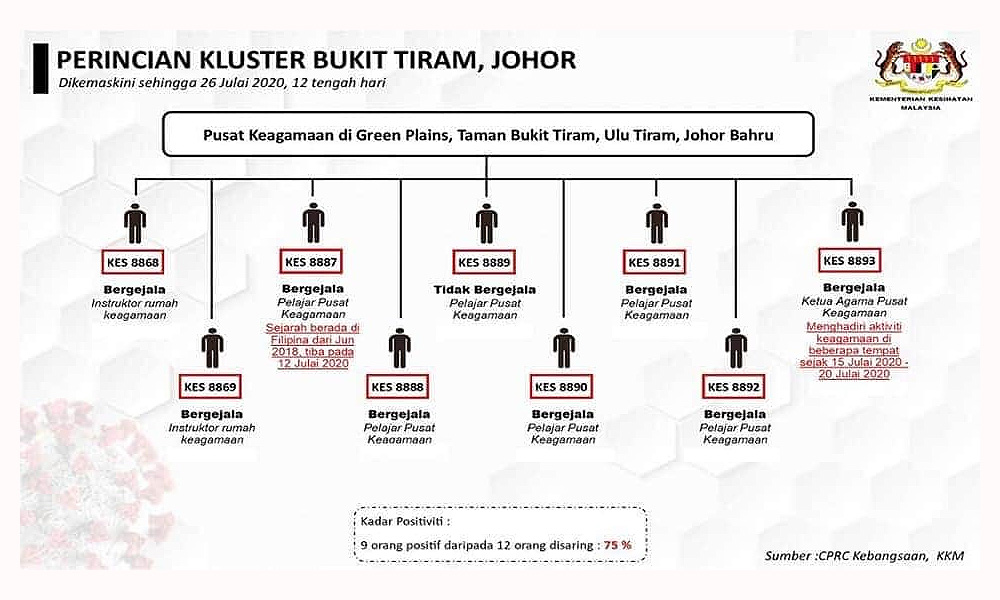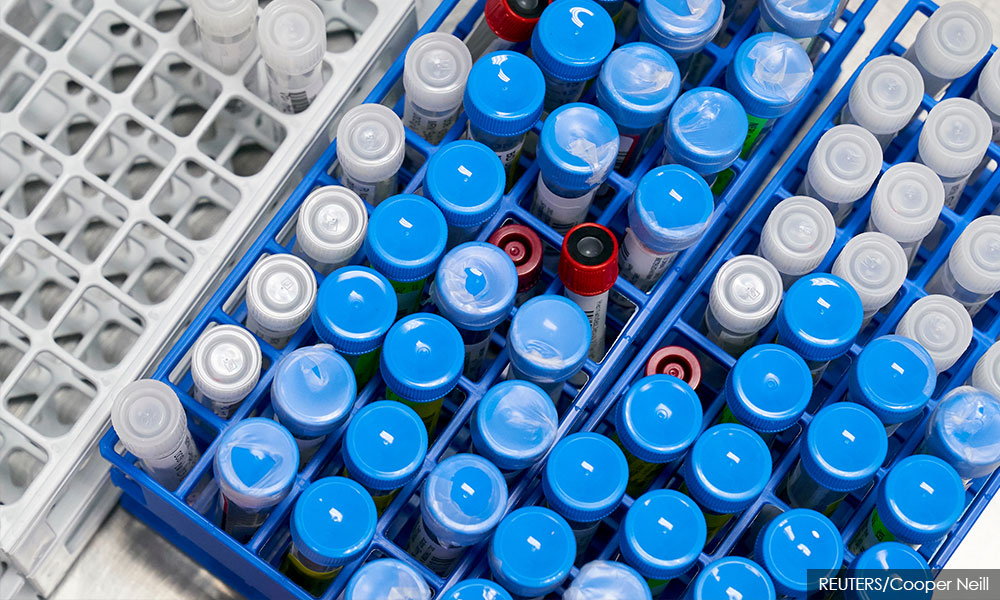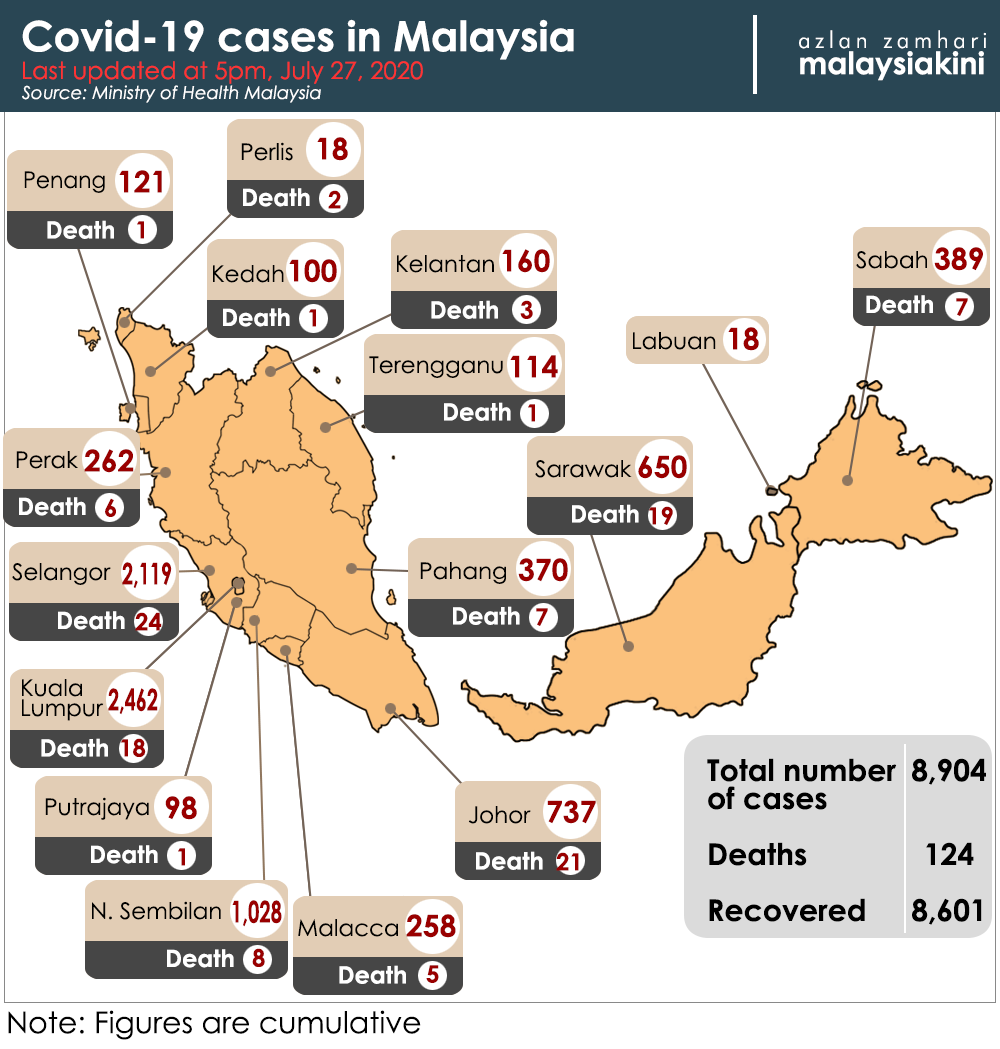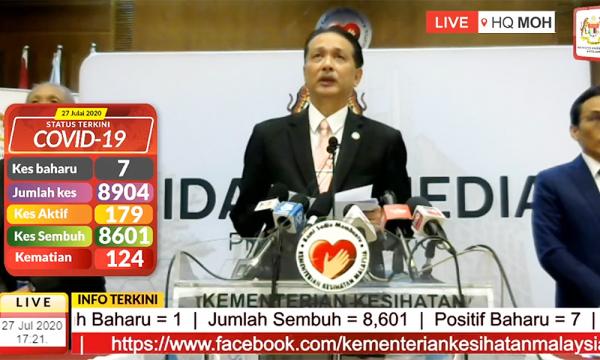CORONAVIRUS | The Health Ministry has reported seven new Covid-19 cases up to noon today, of which three cases were transmitted locally.
Health director-general Dr Noor Hisham Abdullah (above) said the three cases were detected through pre-operation testing in Sabah hospitals – two at Queen Elizabeth Hospital in Kota Kinabalu, and one at Women’s and Children’s Hospital in Likas.
“So far, we are still investigating the pre-operation cases,” he told a press conference in Putrajaya today.
The three cases involved Malaysians, he added.
He noted that the prevalence of Covid-19 cases amongst patients being screened prior to surgery at government hospitals remains low, with only 32 patients out of 76,754 tested (0.1 percent) yielding a positive result.
Nevertheless, the government will continue to screen patients prior to surgery for various ailments, which serves as a means to monitor Covid-19 transmission in the community.
As for imported cases, one infection was reported each from Pakistan, Russia, Australia, and Indonesia.
The patients comprise three Malaysians and one non-citizen who is married to a Malaysian.
Noor Hisham said this brings the total Covid-19 cases in the country to 8,904, of which 179 are still active.
One patient has recovered and was discharged over the past day.
None are being treated in intensive care units and no new deaths have been reported.

Meanwhile, the director-general said the ministry is targeting the Bukit Tiram Cluster for active case detection.
The cluster has nine confirmed cases so far, but it involved a Roman Catholic church and religious activities in several states.
One of the cases was an imported infection from the Philippines, but Noor Hisham said the source of the Covid-19 infection in the cluster is still being investigated.
As such, he said the ministry is tracking down all attendees at the affected places of worship, as well as their close contacts, for testing.
Other individuals who are at high-risk or have close ties with the group are encouraged to undergo Covid-19 testing on their own, and those with symptoms should contact government health clinics or district health offices for treatment.
“The ministry urges that this group is not ostracised or stigmatised by the community.
“Instead, we should help them and encourage them to come forward for testing. It is hoped that this would contain the spread of Covid-19 in the country,” he added.
Previously, the Health Ministry had said one of the patients involved in the cluster had arrived from the Philippines on July 12, while another had attended religious ceremonies at several places between July 15 and July 20.

As for testing, Noor Hisham said laboratories in Malaysia have conducted 4,728 RT-PCR tests for Covid-19 yesterday, out of the daily capacity of 37,100 spread across 56 labs.
However, the data is incomplete as private laboratories have yet to supply data for some tests that have yielded negative results.
Cumulatively, as of yesterday, 105,346 tests have been conducted using antigen rapid test kits, of which 241 (0.2 percent) showed positive results.
When asked on the government’s move to make the wearing of face coverings mandatory in crowded public places beginning Aug 1, Noor Hisham said the government is looking for ways to provide people in the B40 income group with free masks.
With regard to non-medical masks, he said single and double-layer masks are not effective in preventing Covid-19 transmission, and its use is thus not encouraged.
He echoed the World Health Organisation’s recommendation that fabric face masks should have a three-ply construction: A water-absorbent inner layer, a water-repellent outer layer, and another water-repellent layer in the middle.



